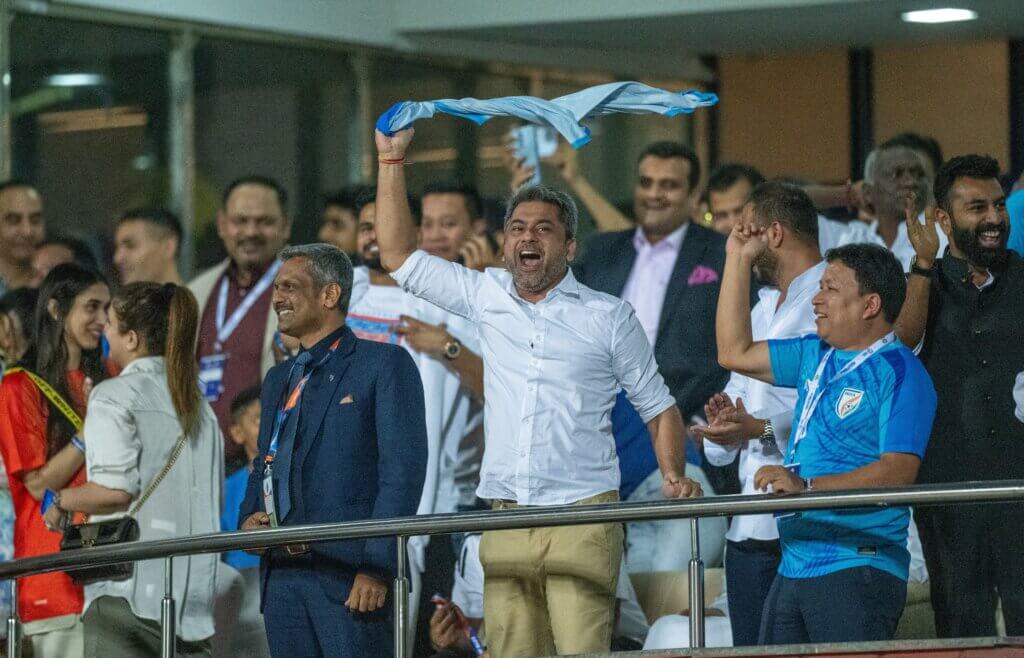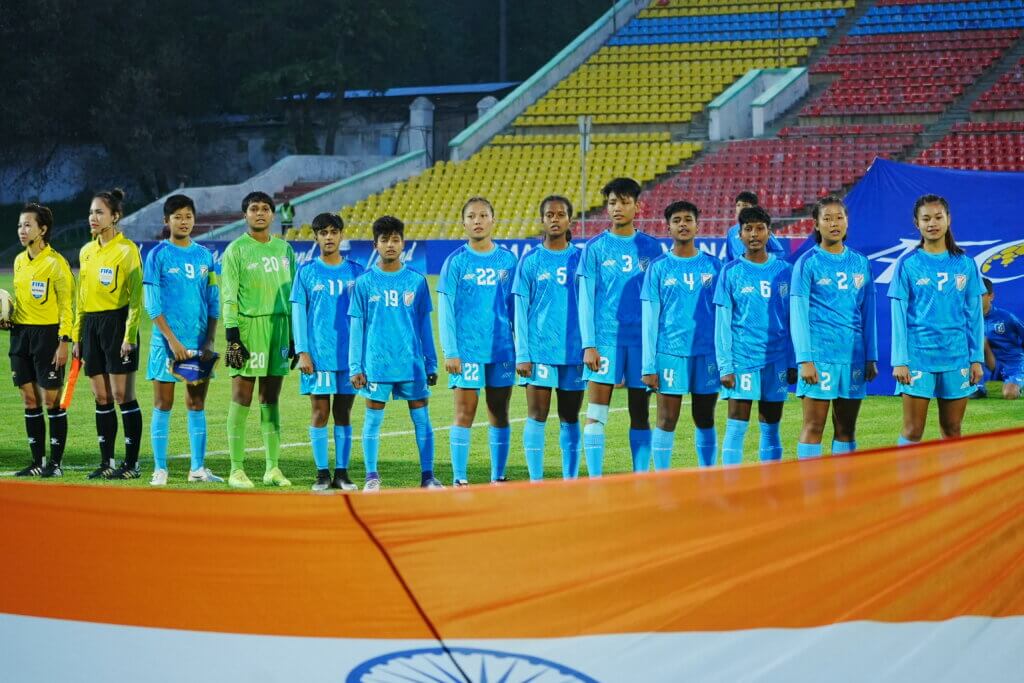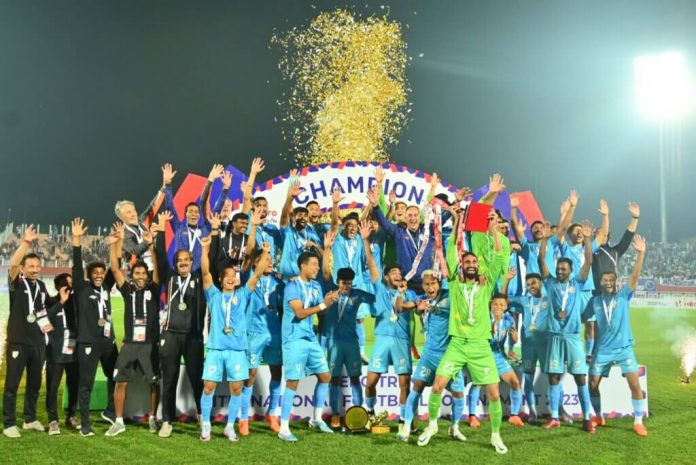AIFF Media Team
NEW DELHI: All India Football Federation President Mr Kalyan Chaubey wasn’t far from the truth when he said: “We dream of reviving the glory days of Indian Football,” during the launch of ‘Vision 2047’.
In fact, he was modest and chose to underplay the power beneath the dream project. In reality, January 7, 2023, will go down in history as a watershed moment in Indian Football, igniting steady growth in demand for many years. As Vision 2047 spread its wings, Indian Football, like a gliding eagle, flew gracefully with nary a hitch or a stumble.
For diligent implementation, Vision 2047 was broken down into six four-year strategic plans, the first of which is called Target 2026, and it is off to a blistering start.
Eight months into the journey, it is for everyone to see how full of activity Indian football has been this year. And now, before September, probably the busiest-ever month for India in international football, begins, we take a look at what has transpired over the course of 2023 in the country.
The SAFF Championship triumph was undoubtedly the most visible achievement of Indian football this year. Almost two months have passed since that sensational night of the final, but the sounds of the Blue Tigers and the Kanteerava singing Vande Mataram together still reverberate in the hearts of the Indian football faithful, and will continue to do so for years to come.
India have always been the king of SAFF, and this was their ninth title win. But it’s no secret this was the most special of them all. And not only because of quality guest opposition like Kuwait and Lebanon but also due to the inspiring role played by the dedicated fanbase of Bengaluru. “If you weren’t there, we wouldn’t have got the trophy. I’m not trying to praise you or be modest. I’m just stating a fact,” said skipper Sunil Chhetri.
This year, the senior men’s team travelled to places it had never been in the past, returning victorious in all. The crowd at the Tri-Nation Series in Imphal was fantastic in March. Bhubaneswar, known for its love for sports, finally got the chance to witness the Blue Tigers in action at the Intercontinental Cup in June.
Plans are in place for the future as well, and a lot of them have something to do with reviving the past. The Indian men’s and women’s teams are set to return to the Asian Games, which had been a golden stage for the nation in the past, after nine years at Hangzhou 2022. India will also be back at October’s Merdeka Tournament in Malaysia for the 18th time and the first since 2001.
At the domestic level, the Federation Cup was revived for the 2023-24 season. The Institutional League has been introduced, seeking to revive the glory of the institutional teams, who have contributed so much towards the game in India over the years.
Apart from linking the past, present, and future, it has also been a year of a lot of firsts in Indian football. The new flagship and multi-dimensional grassroots programme Blue Cubs, has generated a lot of attention since its launch in May. Part of the Strategic Roadmap, ‘Vision 2047′, it was accompanied by the launch of the Blue Cubs League for children between ages 4 to 12.
Punjab FC became the first side to be promoted from the I-League to the Indian Super League, doing so in dominating fashion with a ten-point winning margin over Sreenidi Deccan. Adding more clarity and structure to the football league pyramid in India was a major target of Vision 2047, and as such, the I-League 3rd Division has been introduced as the nation’s fourth-tier league. At the state level, the no-foreigner rule was introduced for the first time, adding a new flavour to the local leagues. The immense popularity of the Calcutta Football League, which is in full swing at the moment with homegrown talent, is a testament to that.

As per Target 2026, the period of the first strategic plan, the Federation planned to ensure a proper pyramid for women’s football in India. The league structure of the women’s game is set for a total revamp. For the first time, the Indian Women’s League will be played on a home-and-away basis across four months, with eight teams representing seven states. There will be promotion and relegation, of course, with the introduction of the IWL 2nd Division. The women’s football structure will continue to expand gradually over the coming years, with more teams and matches across all tiers.
Football’s smaller versions have also broken new ground in India. The inaugural Beach Soccer National Championship was held in January, with Kerala emerging champions in a beautiful atmosphere on the sandy beaches of Surat. Futsal went international as the Indian men’s national team made its debut, playing two friendlies against Bahrain in August. In October, the Joshuah Vaz-coached side will make its competitive debut at the AFC Futsal Asian Cup Qualifiers in Tajikistan.

Also going international for the first time was the Santosh Trophy. Punjab, Services, Meghalaya and Karnataka were the four lucky sides, embarking on the trip of their lives to Saudi Arabia after qualifying for the semi-final. The latter two contested a thrilling final at the King Fahd International Stadium in Riyadh, with Karnataka winning 3-2 to emerge champions for the first time in 54 years.
Indian football is moving forward at a fast pace. It’s important to take a breath and look back at how far we’ve come. But what’s more important is to keep progressing on the same path, add more firsts and create more history. There’s a long way to go, and there’s no ceiling for success.



